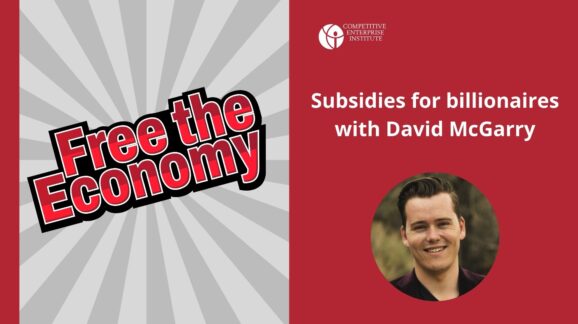There are two main areas in which Congress can enact meaningful reform. The first is to rein in regulatory guidance documents, which we refer to as “regulatory dark matter,” whereby agencies regulate through Federal Register notices, guidance documents, and other means outside standard rulemaking procedure. The second is to enact a series of reforms to increase agency transparency and accountability of all regulation and guidance. These include annual regulatory report cards for rulemaking agencies and regulatory cost estimates from the Office of Management and Budget for more than just a small subset of rules.
In 2019, President Trump signed two executive orders aimed at stopping the practice of agencies using guidance documents to effectively implement policy without going through the legally required notice and comment process.
Featured Posts

Blog
The week in regulations: Bird hunting and food coloring
The Federal Register’s website became less transparent about rule counts and other data. President Trump threatened to send the military into a third city. The…

Blog
Free the Economy podcast: Subsidies for billionaires with David McGarry
In this week’s episode we cover White House intervention in corporate ownership, the nation’s falling economic freedom ranking, and welcome new…

News Release
Federal appeals court rules on NLRB unconstitutionality
The 5th Circuit Court of Appeals today issued a ruling suggesting the structure of the federal government’s top labor dispute regulator, the National Labor Relations…
Search Posts
Blog
March Madness
In the closing days of March, not only are sports fans a bit crazy, so also are the electorate. Consider the German state of Baden-Wuerttemberg,…
Op-Eds
Antitrust In the Airwaves?
For a moment there I was thrilled that AT&T and T-Mobile were merging, thinking how great it’ll be to finally get reception this coming Easter…
Blog
Senators Seek to Censor Mobile App Stores, Disregarding Public Safety and the Constitution
In the latest example of big government run amok, several politicians think they ought to be in charge of which applications you should be able…
Study
Class Conflict
Gainful Employment Proposal Penalizes At-Risk Student Populations and Hurts the Economy…
News Release
New CEI Study Challenges Department of Education’s “Gainful Employment” Rule
Washington, D.C., March 24, 2011 – In a new study released today by the Competitive Enterprise Institute (CEI), author Kara Cheseby challenges the…
Blog
TTB Should Allow, Not Mandate Nutritional Labels
Last month I penned an article for BigGovernment.com in which I asserted that some large alcohol producers were in favor of the nutritional label…
Staff & Scholars

Clyde Wayne Crews
Fred L. Smith Fellow in Regulatory Studies
- Business and Government
- Consumer Freedom
- Deregulation

Ryan Young
Senior Economist
- Antitrust
- Business and Government
- Regulatory Reform

Fred L. Smith, Jr.
Founder; Chairman Emeritus
- Automobiles and Roads
- Aviation
- Business and Government

Sam Kazman
Counsel Emeritus
- Antitrust
- Automobiles and Roads
- Banking and Finance

Marlo Lewis, Jr.
Senior Fellow
- Climate
- Energy
- Energy and Environment